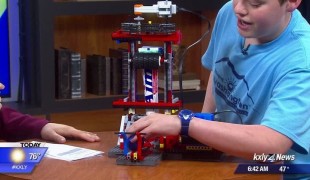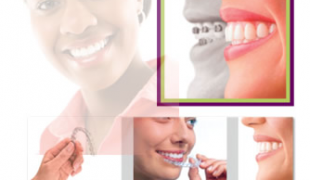- 6127
- 415
- 14
- 12
- 0
- Help Ukraine
About the solution
Amos Dudley, born the USA, in 1993, is a college student who 3D printed his own aligner, 2016, to help correct his crooked smile. It’s cheaper than using the braces prescribed by the dentist.
"Then it was just a matter of animating them into their correct positions. measured the total distance of travel, and divided it by the maximum recommended distance a tooth can travel per aligner. Each frame of animation was baked into a new STL model”.
Using a 3D printer, he came up with 12 models and using a vacuum form machine, he produced plastic aligners over the top, using special dentist plastic he bought on eBay. He built his own aligners for about 60 USD.
"These have to sit in the mouth without breaking down or releasing toxic chemicals, so the quality of the plastic is important”, he highlighted. Amos started to use the device, only taking it to eat.
"As far as I know, I’m the first person to have tried DIY-ing plastic aligners. They’re much more comfortable than braces and fit my teeth quite well. I was pleased to find, when I put the first one on, that it only seemed to put any noticeable pressure on the teeth that I planned to move - a success! Most importantly, I feel like I can freely smile again", he observed.
However, the inventor doesn’t advise anyone to 3D print their own aligners. There can be damage which could result in loss of the supporting tooth root, gum recession, or, in the worst case, loss of teeth.
The student’s experiment is mostly a statement so that he can show that people are unhappy with the state of the orthodontic appliance industry for having such high prices.
“I won't be making retainers/aligners for people (even if you offer money). I've thought about the possibility and decided it's not a good idea for a large number of reasons. Sorry!”, he wrote on his blog.
Adapted from: https://bit.ly/2HpeoQU
More info: http://amosdudley.com/weblog/Ortho
This solution shall not include mention to the use of drugs, chemicals or biologicals (including food); invasive devices; offensive, commercial or inherently dangerous content. This solution was not medically validated. Proceed with caution! If you have any doubts, please consult with a health professional.
DISCLAIMER: This story was written by someone who is not the author of the solution, therefore please be advised that, although it was written with the utmost respect for the innovation and the innovator, there can be some incorrect statements. If you find any errors please contact the patient Innovation team via info@patient-innovation.com
-
-
554
-
1
-
9088

Boy builds device to help people with poor grip brush their teeth
Grip
Arthritis
Rheumatoid Arthritis
Reactive Arthritis
Polyarthritis
Gout
Hand Deformity
Assistive Daily Life Device (to help ADL)
Difficulty walking or moving
Muscle weakness
Limited range of motion
Muscle pain or stiffness
Reduced grip force (grip)
Loss of muscle coordination
Muscle cramps or spasms
Joint deformity
Joint redness or warmth
Muscle twitching
Muscle aches or weakness
Joint pain or swelling
Swollen or painful joints
Swelling or inflammation
Managing pain
Promoting self-management
Managing Neurological Disorders
Promoting inclusivity and social integration
General and Family Medicine
Orthopedics
Rheumatology
United States
-
-
-
489
-
0
-
7216

Invisalign - teeth straightening solution
-
-
-
503
-
0
-
6469

Students invent fixture for treating malformation of jawbone
-
 en
en